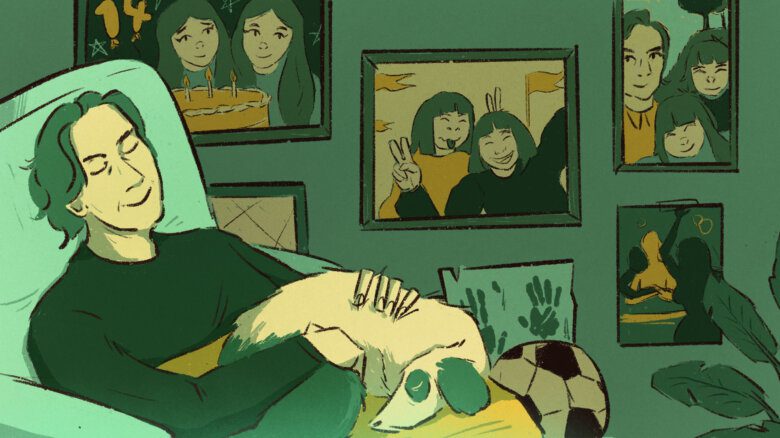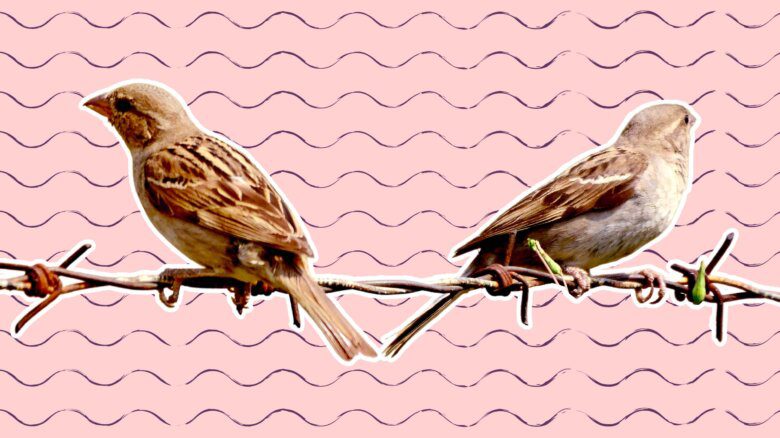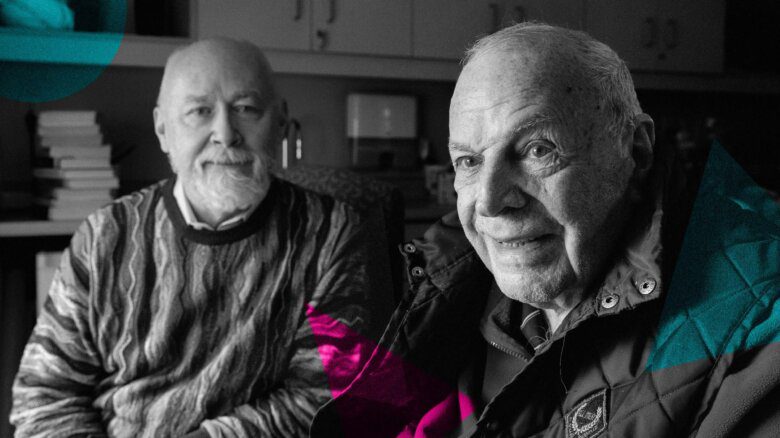“Ask Kai: Advice for the Apocalypse” is a column by Kai Cheng Thom to help you survive and thrive in a challenging world. Have a question? Email askkai@xtramagazine.com.
Dear Kai,
I’m seeking guidance in supporting a friend who has struggled with addiction for more than 10 years. Our dynamic involves her reaching out to me for support often. At first, she wanted everything kept private and anonymous, and I slipped into trying to save her, stretching myself way too thin. At some point, we lost contact for a while. The distance helped me see my saviour complex more clearly and realize that I do not have the power to “save” her. (What does that even mean?)
She’s been reaching out to me for money again after a year of very little contact. Today, she texted me that the police came to her house to collect a fine and that if she was unable to pay she would have to do time in jail. I feel incredibly angry, sad and worried about her being exposed to anti-Black violence.
I want to support her, but I feel myself reaching capacity. I promised her anonymity, but broke that promise by telling friends about this because I am not capable of holding everything on my own. I struggle not to get resentful and judgmental; I struggle to remind myself that addiction is not a choice; I struggle to remember that I have needs.
I want to have a nurturing relationship with this beautiful, flawed human, but it keeps feeling off balance. I want to work together with our mutual friends to respond to what she’s going through and set up structures that support her, but her wish for confidentiality makes this very difficult. How do I support my friend without losing myself?
Tired and Sad
Dear T&S
In every line of your letter, I can see how hard you are trying to be a good person and a good friend, how deeply you want to find a way to live up to your values while also honouring your own needs. This is one of the most challenging parts of being a person in relationship with other people and of being alive in this imperfect world. Sometimes honouring our needs and boundaries means disappointing the people we love. How can any of us bear it?
I think the answer lies in the lifelong journey towards accepting what it means to be human, which is to say, developing radical self-love and self-compassion for those moments where we are faced with seemingly impossible choices. Right now, T&S, you seem to be caught in the impossible choice of caring for your friend in the way she wants (which prevents you from bringing in other people) and maintaining your own boundaries and needs. Here, I invite you to step into radical self-love and self-compassion. As you’ve mentioned, you cannot be responsible for “saving” anyone.
Pushing past your limits to try to give someone support is not a sustainable situation, for either of you. And sometimes the best—and only—thing we can do for someone who isn’t willing to accept a sustainable form of support is to model being kind to ourselves.
You may have already heard of the “oxygen mask” metaphor for self-care: when the oxygen in the cabin of an airplane drops below acceptable levels, passengers are required to put on oxygen masks for survival, many passengers might be tempted to help children, elders and other loved ones put theirs on before putting on their own. In fact, best practice is to put on your own mask first, in large part because this guarantees that you won’t pass out before you finish helping anyone else.
Though it’s easy to forget or ignore this principle, crisis support for friends and family is analogous to putting on an oxygen mask in an airplane emergency. If we don’t attend to our own physical and psychological safety, we become compromised in more ways than one. Not only are we likely to burn out or potentially even experience vicarious trauma, we also run the risk of sliding into resentment and igniting conflicts with the very people we are trying to help.
Reading your letter, T&S, I can see that you have already started to struggle with resentment and overwhelm, which is an important internal signal to pay attention to. If you really listened to the voice of that resentment and the role it plays in trying to protect you, what message would you hear? What wisdom does that resentment have to offer you?
“The survival-focused mindset that shock, catastrophe and trauma induce within us is focused on short-term pain relief and immediate threat removal. It is less effective at helping us plan for growth and healing.”
Something I invite you to consider is the possibility that the help your friend is asking for—emotionally intense, financial, completely confidential and anonymous—is not actually helpful to her. While it’s certainly important to deeply respect her wishes and her boundaries around privacy and autonomy, I think it’s also fair to acknowledge that folks who are in serious emotional and survival crises may not always have the clearest sense of what will sustain them in the long run. The survival-focused mindset that shock, catastrophe and trauma induce within us is focused on short-term pain relief and immediate threat removal, and it is very good at achieving those goals. It is less effective, however, at helping us plan for longer term growth and healing. That is to say: How much help are you actually able to give this person all by yourself, T&S? And if trying to help her while keeping everything a complete secret is damaging you emotionally, then what will happen to your friend when you almost inevitably burn out? One person can never take the place of an entire support network or a community of care.
This has been a hard truth for me to face, but I truly believe that giving help that harms us is not really helping anyone.
So my question for you, T&S, is: What would make supporting your friend feel sustainable, doable or even joyful? What kind of support can you give your friend with a full heart? Does it need to be less support with more structure, like meeting her once a week or once a month for a check-in coffee or tea? Do there need to be boundaries put on the financial aspect of your support? Do you need to reduce the amount of money you’re lending or stop giving it altogether while offering other kinds of support instead? When you offer your friend the options that actually feel good to offer, what happens?
One thing I can see coming through in your letter quite clearly is your need to bring other folks into this support dynamic. I strongly support this because isolation plus support provision plus an intense emotional dynamic are a recipe for risk in any relationship; trying to help someone with a big problem all on your own makes it very likely that someone will get hurt.
I understand that your friend is feeling a strong need for privacy and anonymity, T&S. Most people want some amount of privacy when it comes to their personal struggles, and that goes double for something as stigmatized as addiction or substance use. While your friend has every right to privacy, you have the right to refuse to stay in a relationship dynamic where you are likely to get harmed (even if unintentionally). You have a right to tell your friend that in order to support her, you will need to bring in other folks to make it safe.
If at all possible, I would suggest not phrasing this as an ultimatum (that is, DON’T say, “You have to let me bring in other people to help you, or else I won’t be your friend anymore!”). Instead, you might see if you can have a conversation with your friend at a time when she’s feeling relatively calm and grounded. Let her know that you’re feeling overwhelmed and scared, and that bringing in other folks is a need for you. You might offer to work together to come up with a plan that preserves as much privacy as possible. You might research and give her a list of counsellors, addiction recovery services and groups that might be helpful to her.
Of course, your friend might refuse to compromise on this. We can’t (and shouldn’t try to) force anyone to change their minds on something as fundamental as privacy about their personal life. This is where the rubber really hits the road when it comes to self-love, T&S, because it means you might need to take some space from your friend for your own health. You might be worrying about what will happen if you do—you mentioned that you are anxious about her possibly experiencing police violence and anti-Black violence, in addition to struggling with addiction. These are real, frightening concerns.
Here’s the thing: you are not responsible for another human being’s life. You can’t be. You can only do your best to offer the support that is available to you to give. And you do have to respect the other person’s choices and trust that they are being as resilient and resourceful as they know how to be.
None of this is particularly satisfying, I’m sure. The questions you are asking are the hardest ones. Know that you are not alone in asking them. Know that you are allowed to grieve—to grieve your friend’s decisions when it seems they are not serving her highest good; to grieve your own perceived mistakes and the limits of your capacity; to grieve a world that systematically marginalizes people and puts us in impossible situations.
Remember that you are not responsible for being anyone’s saviour, T&S. Remember that being a friend who listens and cares is already a rare and powerful offering. Stay true to your authenticity, your boundaries, your sense of what is right, even when it is not easy to do. Offer only what you can with a full heart. You do not have to be perfect to perform miracles. You only have to be clear on your values and your boundaries, and the limits that this world imposes upon us. That is enough, T&S; you are enough.
Kai Cheng Thom is no longer a registered or practicing mental health professional. The opinions expressed in this column are not intended or implied to be a substitute for professional medical advice, diagnosis or treatment. All content in this column, including, but not limited to, all text, graphics, videos and images, is for general information purposes only. This column, its author, Xtra (including its parent and affiliated companies, as well as their directors, officers, employees, successors and assigns) and any guest authors are not responsible for the accuracy of the information contained in this column or the outcome of following any information provided directly or indirectly from it.


 Why you can trust Xtra
Why you can trust Xtra


